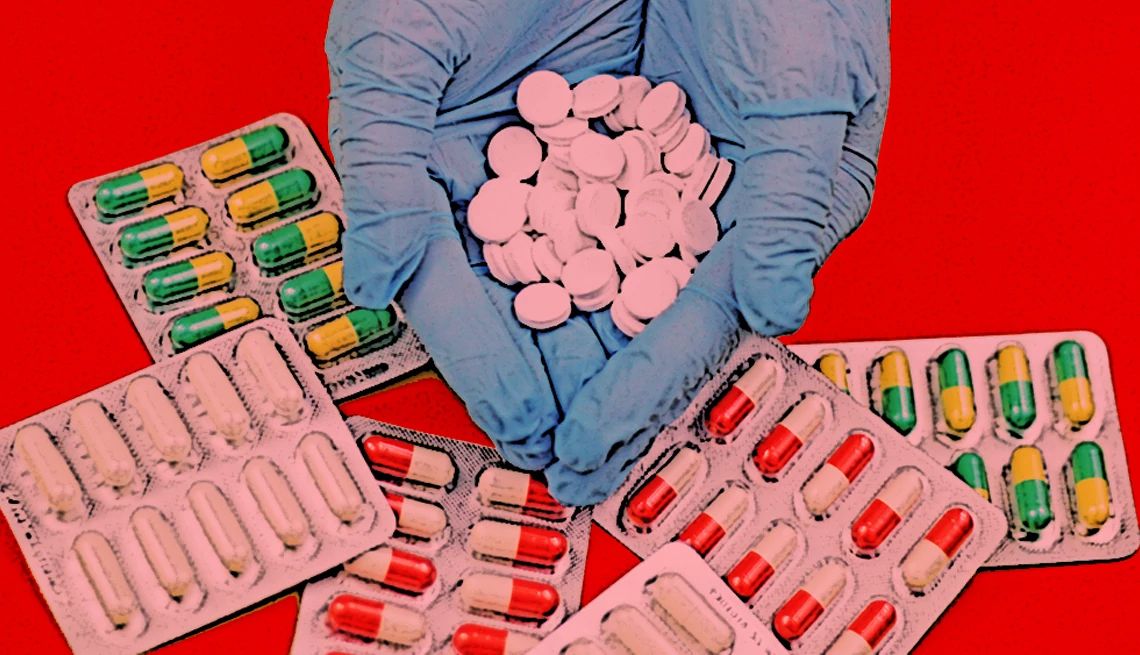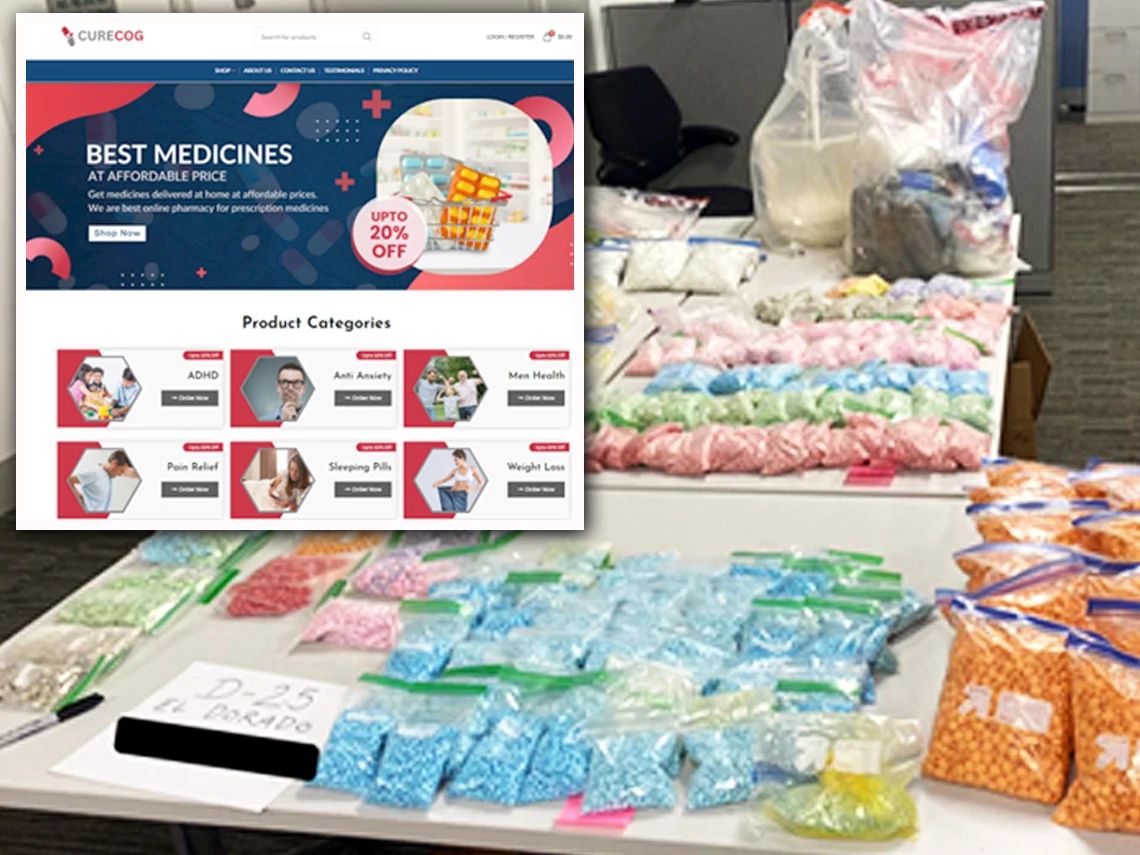AARP Hearing Center


The Centers for Disease Control and Prevention (CDC) issued a public health warning about prescription medications sold by online pharmacies, many of which are tainted with fentanyl, a synthetic opioid that is 50 times more potent than heroin.
The warning follows a Sept. 30 indictment by the Department of Justice against 18 defendants in the U.S., India and the Dominican Republic accused of selling millions of counterfeit pills disguised as legitimate pharmaceutical drugs. These defendants allegedly distributed dangerous pills across all 50 states, Washington, D.C., the U.S. Virgin Islands and Puerto Rico, with victims ranging in age from 23 to 77.
These bogus pharmacies frequently sell unapproved, counterfeit or unsafe medicines that don’t meet the safety standards of licensed pharmacies. It’s important to only take medications prescribed by a licensed health care provider and filled by a trusted pharmacy, the Food and Drug Administration (FDA) said.
Nearly 95 percent of websites offering prescription-only drugs online are operating illegally, according to the National Association of Boards of Pharmacy.


How to buy medicines safely from online pharmacies
Many unsafe online pharmacies use fake “storefronts” to mimic licensed pharmacies and trick patients into thinking that the medications come from countries with high safety standards. But in reality, the drugs could have been made with little concern for safety and effectiveness — they may be fake or expired.
Steps to take if you purchased pills from an online pharmacy:
- Check if it is U.S. state licensed by the FDA here.
- If you suspect the drugs to be counterfeit do not take them, especially if they did not require a prescription and were sold at a deep discount.
- Have naloxone on hand. Administer this opioid overdose reversal drug immediately to any person who shows signs of an overdose.
- Call 911 immediately if an overdose occurs.
- For questions about an unknown substance, contact Poison Control at 800-222-1222 or https://poisoncenters.org.
Warning signs of unsafe online pharmacies:
- They don’t require a doctor’s prescription.
- They aren’t licensed in the U.S. or by your state board of pharmacy.
- They lack a licensed pharmacist to answer your questions.
- They send medications that look different from what you usually get; the packaging is broken, damaged, in a foreign language or missing an expiration date; or the medicine is expired.
- They offer deep discounts or prices that seem too good to be true.
- They charge you for products you didn’t order or receive.
- They don’t clearly protect your personal and financial information.
- They sell your information to other websites.
A legitimate online pharmacy:
- Always requires a doctor’s prescription.
- Provides a physical address and telephone number in the U.S.
- Has a licensed pharmacist on staff to answer your questions.
- Is licensed with a state board of pharmacy.































































More From AARP
11 Medication Mistakes You May Be Making
Common mishaps and how to avoid themFake Supplement and Vitamin Scams
How to spot fake dietary supplement scams
Try These Tips for Living a Healthier Life
Small changes can add up to big mental and physical results
Recommended for You